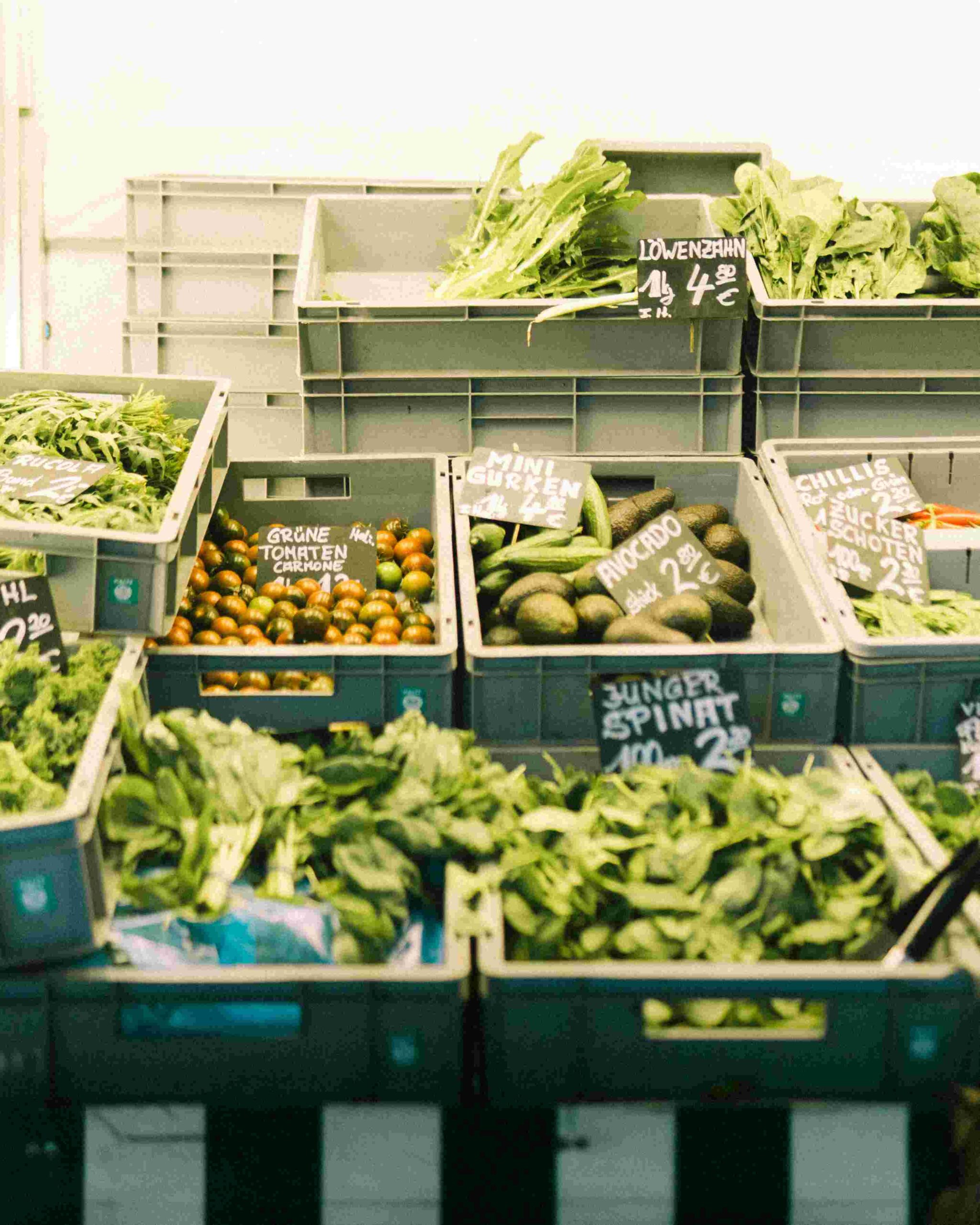
Introduction to Sustainable Nutrition
Sustainable and eco-friendly nutrition is an approach that emphasizes consuming foods in a way that is beneficial for both human health and the environment. It focuses on minimizing the ecological footprint, promoting biodiversity, and reducing waste. This lifestyle aims to ensure food security for future generations without compromising the planet’s resources. As more people become aware of climate change and environmental degradation, sustainable eating has gained traction as a critical solution to these issues.
Why Should We Adopt Sustainable Nutrition?
Environmental Impact:
Traditional food production methods, especially in the meat and dairy industries, contribute significantly to greenhouse gas emissions, deforestation, and water pollution. By shifting to a more sustainable diet, such as reducing meat consumption and focusing on plant-based foods, we can lower our carbon footprint.
Health Benefits:
Sustainable eating often goes hand-in-hand with choosing whole, minimally processed foods. This can lead to improved health outcomes such as lower risks of chronic diseases like heart disease, diabetes, and certain cancers. A diet rich in fruits, vegetables, whole grains, and plant-based proteins promotes overall well-being.
Ethical Considerations:
Sustainable nutrition is also about making ethical choices that consider animal welfare and fair trade practices. It encourages support for local farmers, organic products, and cruelty-free farming methods.
Economic Viability:
Sustainable practices like eating seasonal produce and reducing food waste can save money in the long run. It also supports local economies, which is crucial for the growth of small-scale farming.
Key Principles of Sustainable Nutrition
To maintain a sustainable diet, it’s essential to adopt certain principles:
Prioritize Plant-Based Foods:
A plant-centric diet is one of the most effective ways to reduce environmental impact. Focus on consuming legumes, vegetables, fruits, whole grains, and nuts. These foods have a lower environmental footprint compared to animal-based products.
Eat Seasonal and Local:
Choosing locally grown, seasonal foods minimizes transportation-related carbon emissions and supports local farmers. Seasonal produce is also fresher, more nutrient-dense, and often more affordable.
Minimize Food Waste:
A significant amount of food is wasted every year, contributing to unnecessary resource use. Planning meals, properly storing leftovers, and repurposing ingredients can drastically reduce waste.
Choose Organic and Regenerative Farming:
Organic farming reduces the use of harmful pesticides and fertilizers, which can contaminate soil and water. Regenerative agriculture goes a step further by restoring soil health, enhancing biodiversity, and sequestering carbon.
Mindful Consumption:
Being conscious of portion sizes and avoiding overconsumption is key to sustainability. This not only reduces food waste but also promotes a balanced lifestyle that supports weight management.

Foods to Avoid in a Sustainable Diet
Highly Processed Foods:
These require significant energy and resources to produce and often contain additives that are harmful to health. Opting for whole foods instead can reduce your environmental impact.
Excessive Red Meat and Dairy Products:
While animal products can be part of a balanced diet, their production is resource-intensive. Reducing or eliminating red meat and dairy can significantly cut down on water use, land degradation, and greenhouse gas emissions.
Palm Oil:
Widely used in processed foods, palm oil production is a leading cause of deforestation and habitat loss for endangered species. It’s best to choose products that use sustainable palm oil or avoid it altogether.
Gluten-Based Substitutes like Seitan:
For those seeking plant-based protein options, it’s better to opt for lentils, chickpeas, and other legumes rather than gluten-based alternatives like seitan, which might not align with everyone’s dietary needs.
Imported Out-of-Season Produce:
Consuming imported foods that are not in season can increase the carbon footprint due to transportation. Focus on seasonal and local produce whenever possible.
Advantages of Sustainable Nutrition
Improved Gut Health:
A diet rich in plant-based foods supports a healthy gut microbiome, which plays a crucial role in digestion, immunity, and even mental health.
Reduced Risk of Chronic Illnesses:
By minimizing processed foods and focusing on whole foods, sustainable eating helps to reduce the risk of obesity, heart disease, and other chronic conditions.
Better Environmental Stewardship:
Adopting sustainable nutrition practices makes individuals more aware of their impact on the environment, fostering a mindset of conservation and responsibility.
Enhanced Food Security:
Reducing waste and choosing sustainable food options contributes to food availability for others, helping to address global hunger issues.
Additional Focus Areas for Sustainable Nutrition
Supporting Biodiversity
Sustainable diets encourage the consumption of diverse food sources, which helps maintain biodiversity. By eating a variety of grains, legumes, fruits, and vegetables, consumers help preserve different plant species.
Water Conservation
Certain food production processes require vast amounts of water. For example, beef production is highly water-intensive. Shifting towards plant-based proteins like lentils or chickpeas can significantly reduce water use.
Packaging and Plastic Reduction
Reducing the consumption of packaged foods can cut down on plastic waste. Opting for reusable bags, buying in bulk, and choosing products with minimal packaging can make a big difference.

How to Transition to a Sustainable Diet
Start Small
If you’re new to sustainable eating, start by incorporating one plant-based meal a day. Gradually increase the frequency as you become more comfortable.
Experiment with Plant-Based Proteins
Instead of seitan or dairy-based proteins, try options like chickpeas, lentils, quinoa, and tofu. These foods are versatile, nutrient-dense, and have a smaller ecological footprint.
Plan Your Meals
Meal planning helps you buy only what you need, reducing the likelihood of waste. It also encourages the use of seasonal and local produce.
Educate Yourself
Stay informed about the environmental impact of different foods and make conscious choices when shopping. Reading labels and understanding where your food comes from can empower you to make better decisions.
Conclusion
Sustainable nutrition is not just a trend but a vital approach to ensuring the well-being of both our planet and ourselves. By focusing on plant-based, seasonal, and minimally processed foods, and being mindful of waste, we can make a significant difference. The shift towards eco-friendly consumption doesn’t have to be all or nothing—small changes can have a big impact when practiced consistently. As we work towards a more sustainable future, making conscious food choices today is a crucial step in protecting our world for future generations.
Subscribe to our newsletter, follow us on social media to let us know how you’re working towards a balanced life!
Oral Health: Causes, Prevention, and the Role of Nutrition
Oral health is often a neglected part of our...
Food Allergies: Causes, Symptoms, and Management
Food allergies and sensitivities are...
Unintentional Weight Loss
Unintentional weight loss can be distressing,...
The Negative Impacts of Plastic Usage on Health and the Environment
Plastic has revolutionized modern life,...
The Impact of Social Media on Body Image: How It Affects Women’s Health
Social media has transformed how we connect,...
Why Women Need Nutrition Counseling Beyond Weight Loss
Women face unique challenges when it comes to...
The Benefits of Journaling for Mental Health
Journaling has gained recognition as a powerful...
Minimalism and Health: The Effects of a Minimalist Lifestyle on Mental and Physical Well-being
Living in a world where consumerism and constant...
Physical activity: Cardio, Strength Training, Yoga, and Pilates
Engagement in regular physical activity is...










